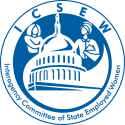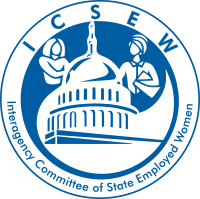Difficult Conversations

How to Respectfully Decline Invitations to Group Gatherings
This week Gov. Jay Inslee announced new month-long lockdown restrictions due to a rapid uptick in COVID-19 cases and hospitalizations. Health officials are recommending residents celebrate Thanksgiving with immediate household members only. But how do you have the difficult conversation when you have to decline invitations for get-togethers? The Washington State Department of Health offers some tips.
Editor’s note: This article first appeared on the DOH’s Medium blog.
Difficult conversations. This week, we released the latest… | by Washington State Department of Health | Public Health Connection | Nov, 2020 | Medium
This week, we released the latest statewide situation report (PDF) on COVID-19 transmission. It shows that COVID-19 is spreading rapidly across Washington. Both the number of people who get COVID-19 and the number of people who need to be hospitalized for it have increased across the state.
Increasing spread of COVID-19 makes planning for the holidays difficult. No one wants to risk getting people they love sick. If you will be seeing extended family members or friends in person for Thanksgiving, make it safer by staying home now. For the next two weeks until Thanksgiving, essentially quarantine yourself and leave your house only for the most essential reasons. And ask your family to do the same to protect you.
Difficult conversations. This week, we released the latest… | by Washington State Department of Health | Public Health Connection | Nov, 2020 | Medium
Even with these precautions, an indoor, in-person gathering is risky. It’s completely reasonable — and safer — to decide to celebrate Thanksgiving with just your immediate household this year. Making that decision is hard, and it can be even harder to tell your family what you have decided!
But during COVID-19, saying “no” to some events can be an act of caring, especially if our loved ones are at high risk of getting very sick.
So, how can you say “no” to an event or get-together in a way that doesn’t hurt anyone’s feelings? Try these tips:
Be clear
Saying no effectively starts with just that — saying no. A simple, direct “no” is the best way to make yourself understood and closes the door for negotiations.
Offer alternatives
Ask if there is another way to connect with the person who invites you to a gathering. Acknowledge you really want to see them but want to keep everyone safe. “I wish we could get together, but I don’t want to do anything to risk you or my family/myself getting sick.” Maybe start planning an opportunity to see each other when the weather lets us be outside.
Be honest
Excuses are tempting, but they can easily backfire when your convenient excuse is met with an equally convenient solution. For example, telling someone you can’t go to an event because you don’t have anyone to watch your children leaves the door open for them to invite your kids as well.
Don’t feel pressured to keep the conversation going
Your “no” is enough. If you get pushed for more reasons or are accused of being unkind or selfish, you aren’t obligated to reply. It’s ok to say something like “I’m sorry you’re upset, but this is my decision and I need you to respect it” — and leave it at that.
For more questions, answers and tips on how to share celebrations safely in the coming months, check out our Safer Gatherings website.
Practice compassion
One of the best gifts you can give your family and friends during the coming months is to not make them feel guilty about saying “no” to an invitation. We all need to make the best decisions we can for ourselves and for our families this year. Accepting those decisions with a simple “I understand — hope we can do it next year!” makes it easier on everyone.
More information
Stay tuned to our blog for more information on how you can help stop the spread of COVID-19. Sign up to be notified whenever we post new articles.
Information in this blog changes rapidly. Check the state’s COVID-19 website for up-to-date and reliable info at coronavirus.wa.gov.
Answers to your questions or concerns about COVID-19 in Washington state may be found at our website. You can also contact our the Department of Health call center at 1–800–525–0127 and press # from 6 a.m. to 10 p.m. Monday — Friday, and 8 a.m. to 6 p.m. Saturday — Sunday. Language assistance is available.
Please note that this call center cannot access COVID-19 testing results. For testing inquiries or results, please contact your health care provider.

